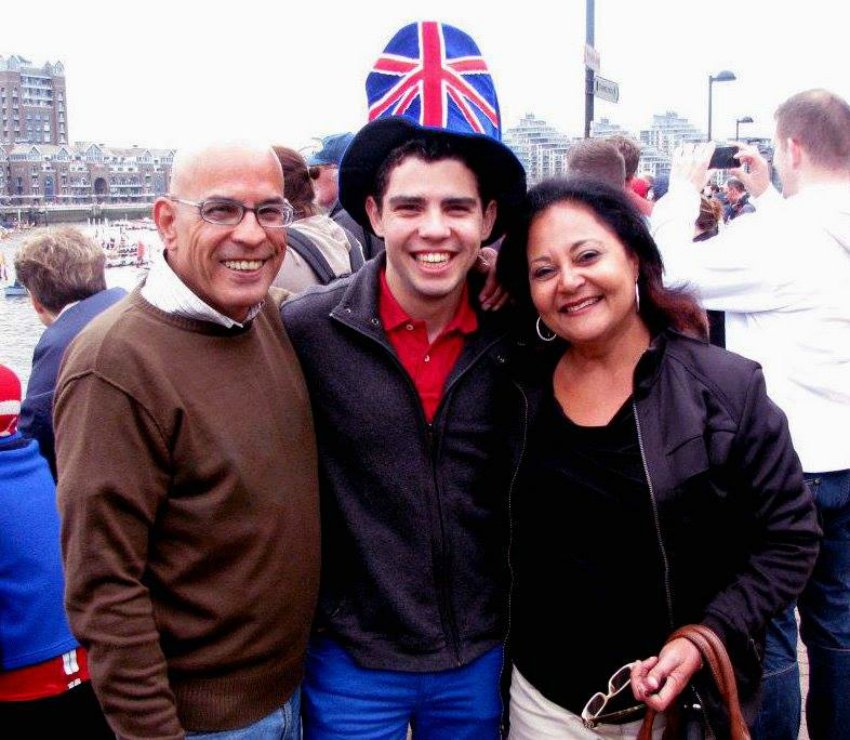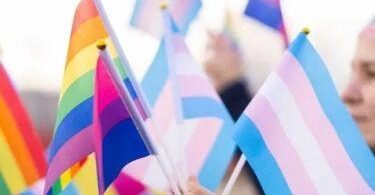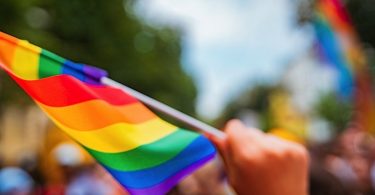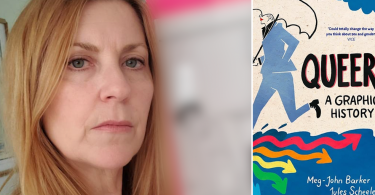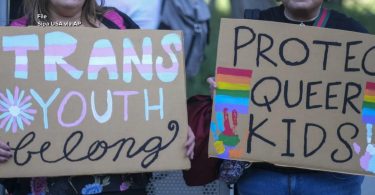‘Trinidad and Tobago set to decriminalise homosexuality’ – words I could have only dreamed of hearing but over the last week have populated my news feeds, international headlines and my thoughts as I silently repeat them in sheer disbelief over and over in my head.
Eight years ago, I was given an opportunity to move to London with my job from Trinidad and Tobago. I was 21 at the time and my parents didn’t know I was gay. Well … at least I hadn’t come out to them.
In my early teen years my Mum and Dad found an online conversation between a guy and I. Needless to say this was an explicit conversation so descriptive that no child would want their parent to have read it — gay or straight.
Sent to therapy
That moment was the beginning of years of resentment towards my parents and an adolescence full of self-hatred as I was forced into a slew of therapy sessions.
I moved to what felt like a new therapist every year assuming the last one had failed my parents by not curing me of my sexuality.
We never really spoke candidly about why I was going to therapy but as I was in denial and all I wanted was to be loved by my parents I just went, every Wednesday after school, for months at a time. I too hoped to be cured.
When this opportunity to transfer to the UK came up my mother was extremely supportive – leaving me suspicious that she wanted to get rid of me.
All I ever received from my parents growing up was overwhelming love and support yet I conjured up in my mind that my mother was so embarrassed by me that without showing me her true feelings she would do anything to get me out of her sight and out of Trinidad and Tobago.
In retrospect, I think people truly underestimate how toxic and lonely it is to live a closeted life.
Coming out to my parents after leaving Trinidad
It wasn’t until moving to London did I muster up the courage to finally come out to my parents — a huge relief to me and no surprise to them.
My parents’ reaction to me coming out contradicted everything I thought they felt all those years. So much so, that I would wish their responses for any young LGBT+ person coming out.
The first thing my father did was apologise for not making me feel comfortable enough to tell him sooner. Then, referencing my three siblings, my mother – who has an inspiring way with words – ended her response to me with, ‘Liam, no matter what happens you’ll always be one of the four jewels on my crown.’
If my success in life, by every definition, were ever to be plotted onto a graph, there would be a steady and gradual increase and then a point with a glaring sudden hike – that point would indicate the moment I came out to my parents.
It was the moment I could openly and freely be my true self and that experience is immensely and positively transformative.
‘Why did you guys try to cure me by sending me to all those different therapists?’
As the months went by and my relationship with my parents grew stronger, I remember visiting Trinidad for the first time since coming out and going for dinner with my parents. We were having beautiful open conversations, my mother even joked asking if I was sure I was gay as I hadn’t introduced them to a boyfriend yet.
As we laughed, it hit me — this was the perfect time to confront them with the thing that had eaten me up for so long.
I looked at them and asked, ‘Why did you guys try to cure me by sending me to all those different therapists and why were you so embarrassed by me that you would do anything for me to leave Trinidad?’
My mother looked across at me in shock as her eyes began to fill with water. She paused for a moment to compose herself and then she began.
‘Liam, we sent you to a therapist because we didn’t know what else to do, we just wanted you to be able to speak to someone, to talk about what you were feeling, to know that it was OK!’
She exclaimed, ‘Embarrassed!?’
‘Liam your father and I are anything but embarrassed by you — the reason I wanted you to leave so badly is because we always knew you were gay. Do you know how hard it is for a mother to look at their child every single day not being able to be themselves, to spend sleepless nights worrying about how people would treat you, to know that we live in a society that doesn’t accept you, in a country that doesn’t accept you.
‘Of course, we wanted you to leave but it was because we loved you.’
A country that doesn’t accept me
From that night on, her words were permanently etched in my memory… ‘a country that doesn’t accept you.’
Anyone that knows me will tell you that the two things I am most proud of are being Trinidadian and being gay. This poses an unresolved dichotomy that I learnt to accept.
I moved to London and immersed myself in LGBT+ work.
I volunteered with organisations, launched a diversity network at my company, attended protests, championed rights, used every platform and opportunity I had to fight for inclusion and equality and even got recognised by the Financial Times as an LGBT Future Leader in Business.
Both my parents and I were incredibly proud but at the back of my mind I would always hear my mother’s words… ‘a country that doesn’t accept you’.
The fight for legal change
This work in London however led me in March 2016 to an HIV event discussing access to PrEP and at the back of the room I heard the strongest Trinidadian accent lamenting about the lack of BAME inclusion in medical research.
At the end of the event I made a beeline to introduce myself and that was the day I met Jason Jones, the man who would go on to successfully challenge the constitutionality of sections of our Sexual Offences Act, paving the way for the decriminalisation of homosexuality in Trinidad & Tobago.
I am so proud to have not only developed a wonderful friendship with Jason, supporting his journey in any way that I can but I am humbled by the sacrifice he has made.
Since meeting Jason and learning of this challenge, I marked the date down in my calendar because I knew no matter the outcome – that day would be significant to our local LGBT+ history. Yet nothing prepared me for how I would feel after hearing the results.
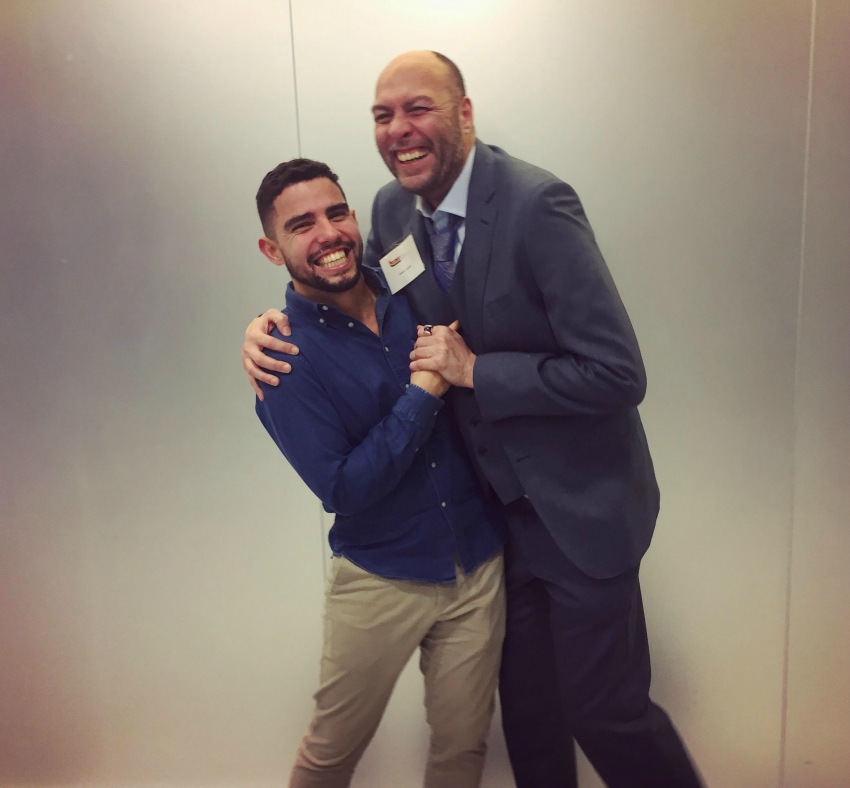
Trinidad and Tobago rule gay sex ban unconstitutional
In the past, I’ve been glued to the news leading up to announcements on same-sex marriage rulings and human rights referendums but those were different, those were for foreign lands where I have little to no connection to besides my shared desire for social justice for all.
I watched live as Jason exited the Hall of Justice and the crowd ignited into absolute exuberance. My heart stopped momentarily and then I just began to cry.
Rainbow flags waving, people crying and hugging each other – scenes I’ve only witnessed in the US, Australia, Germany and Ireland – but this time I knew the faces. I saw my friends, my family and I had walked along that very street thousands of times growing up.
My throat tightened as I wiped away my tears, sobbing at my screen, uttering the names of each person I recognised.
I juggled through tabs on my browser watching news report after news report, refreshing the news feeds of all of my social accounts because even though I was sitting in London thousands of miles away. I wanted to relish the experience, savour the moment and remember this feeling: the feeling of justice. I deserved it. We all deserved it.
It was both the culmination of tireless work and the dawn of a new day. I will never forget the people on the frontline, the local activists and organizations that have been championing equality every single day on the ground in Trinidad and Tobago. Their work is undoubtedly the foundation for this challenge.
‘Laws that discriminate validate other kinds of discrimination’
Although there are still no protections for LGBT+ Trinidadians in housing, employment and public institutions I am reminded of an excerpt of a speech given by Hillary Clinton to the United Nations where she states
‘Progress comes from changes in laws. In many places, including my own country, legal protections have preceded, not followed, broader recognition of rights. Laws have a teaching effect.
‘Laws that discriminate validate other kinds of discrimination. Laws that require equal protections reinforce the moral imperative of equality. And practically speaking, it is often the case that laws must change before fears about change dissipate.’
As people navigating this journey of life, our greatest emotional needs are to belong, to be loved and to be accepted.
Not only does this historic ruling from Trinidad and Tobago High Court Judge Devindra Rampersad open the doors for conversations around policy change but it reminds me that my home, the place I grew up, the place I loved more than anywhere else — does accept me.
And also, that one day a young gay man can sing our national anthem with pride and truly believe the words, ‘here every creed and race find an equal place.’
See also
See the moment LGBTI people in Trinidad and Tobago found out they won

